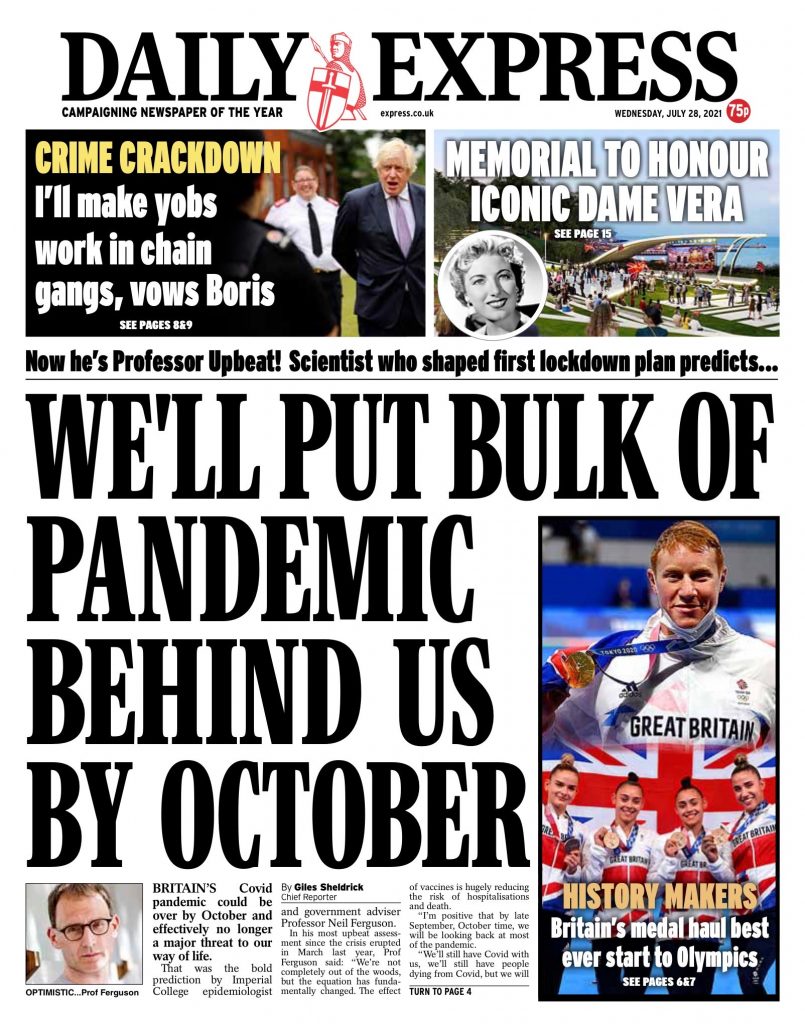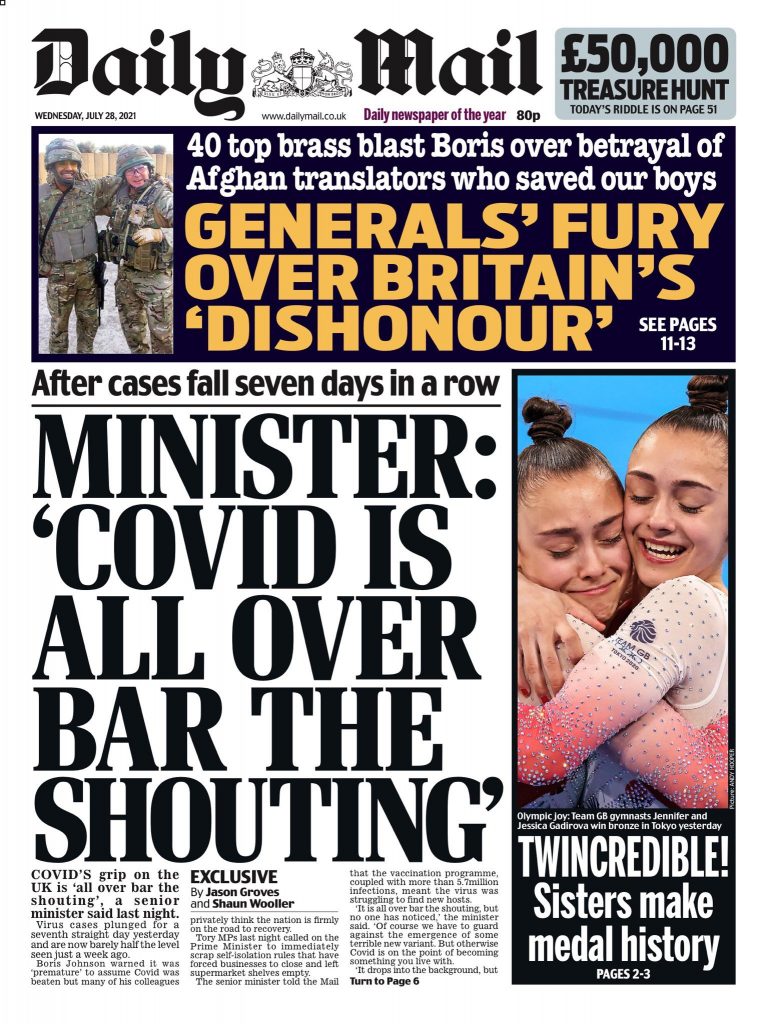Are we rushing to premature conclusions about the latest COVID figures?
Both the Mail and the Express this morning try to paint a positive picture about COVID based on the declining numbers that we have seen in England over the past few days. Such headlines like the ones above might sell more copies or get clicks on their websites but are they being a bit too premature?
We have been here before, of course, only for things to have to be reversed with the relaxation in the rules leading to more cases. The Times is urging caution on its front page under the heading “Covid is not over, Johnson warns as infections fall”:
Boris Johnson has urged people not to relax about Covid after a week of falling cases, warning that a rise resulting from the end of all restrictions was still to come..Scientific advisers are still unsure why cases have fallen and the prime minister urged people not to draw “premature conclusions” that the threat of the pandemic had passed..The end of a spike linked to England’s progress in the European Championship and a spell of hotter weather have been suggested as possible reasons, as has a drop in testing as schools and universities break up for the summer.
The problem ministers have got is that they have had their fingers burned before by rushing to premature conclusions. We are also in the summer a time when we are much more likely to be outside where the risks are that much lower.
There is no doubt that the vaccination campaign has been a great success and from a political standpoint, Johnson wants to get the credit for any relaxation. But there is still a lot of ground to be made up. Only two days ago Opinium reported that just 32% approved of the government’s handling of COVID with 48% disapproving.
Mike Smithson
UPDATE: These are the markeThis market relates to whether the UK government re-introduces any legally enforceable restrictions on social contact in England related to the spread of coronavirus, following the legal end of restrictions on social contact (currently expected to take place on 19 July 2021). Examples may include, but are not limited to, the mandatory wearing of face masks on public transport or the closure of pubs/nightclubs. For the purposes of this market, restrictions will not include any regulations on international travel or any regulations related to self-isolation or quarantine. For the purposes of this market, ‘re-introduce’ does not require any restrictions to exactly replicate previous restrictions. If the UK government does not end restrictions on social contact in 2021, and thus could not ‘re-introduce’ restrictions, this market will be void. Dates in this market relate to when any restrictions come into force in England, rather than the date on which they are announced. All times and dates in this market are in UK time. Clarification (14 July 2021): This market refers to mandatory England-wide measures introduced by the UK government. Any measures that are introduced locally or by individual companies (e.g. Transport for London only) will not count towards the settlement of this market. Clarification (6 September 2021): If ‘vaccination passports’ are required for entry to nightclubs or other events, this market will be settled for yes, so long as the measure satisfies the other conditions in the market rules, i.e. that it is mandatory, implemented by the UK government, England-wide and legally enforceable. Clarification (12 October 2021): If vaccines become mandatory for people working in care homes at any point in 2021 (https://www.gov.uk/government/publications/vaccination-of-people-working-or-deployed-in-care-homes-operational-guidance/coronavirus-covid-19-vaccination-of-people-working-or-deployed-in-care-homes-operational-guidance) this market will be settled for yes, so long as the measure satisfies the other conditions in the market rules, i.e. that it is mandatory, implemented by the UK government, England-wide and legally enforceable.

